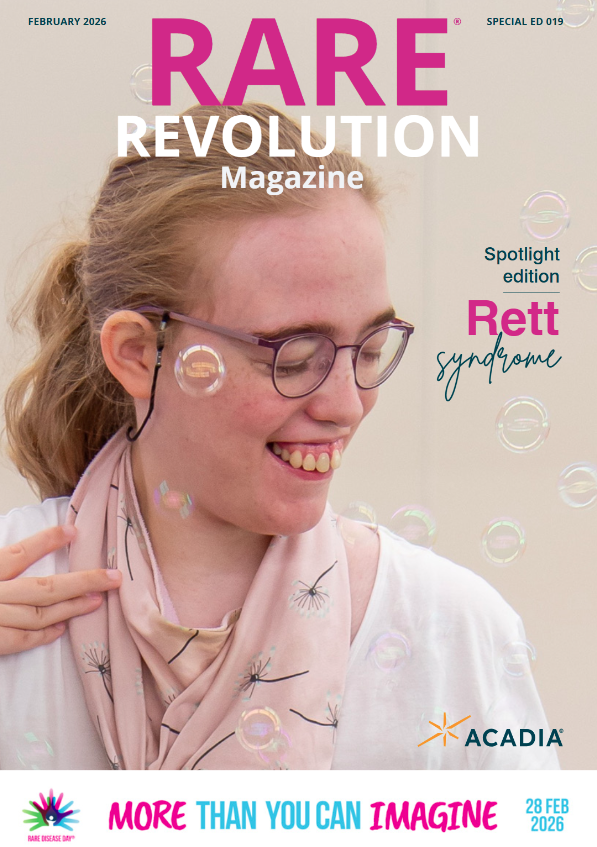UK’s largest ever NHS rare disease diagnosis programme launched by Mendelian and Modality NHS Partnership

Mendelian and Modality NHS partnership set its sights on ending the diagnostic odyssey for those who may be undiagnosed with a rare disease, with the launch of the biggest UK rare disease diagnosis programme.
On the 3rd December rare disease digital health company, Mendelian, and Modality NHS Partnership, have announced the biggest ever rare disease diagnosis programme in the UK to improve rare disease diagnosis and enable quicker access to better care .
With 1 in 17 people affected by a rare disease during their lifetime and a path to diagnosis that lasts on average five years[1], this new partnership will enable earlier and more efficient rare disease care for people supported by the Modality NHS Partnership who may be living with an undiagnosed rare disease.
Beginning in January 2021, Mendelian’s NHS-integrated, purpose-built technology will support primary care diagnosis of rare disease, throughout Modality’s extensive GP practice network. Supporting more than 450,000 people through over 45 GP practices, Modality is the largest GP super-partnership in the UK, covering eight regions from North Yorkshire to Mid Sussex.
Rare diseases is a huge category used to describe over 6,000 known conditions. Each of these conditions affects fewer than 1 in 2,000 people globally, which means that diagnosis, management and treatment is largely unknown, even in the clinical community.1,[2]
- The new collaboration will provide state-of-the-art support for rare disease diagnosis for over 450,000 patients across over 45 GP surgeries in the UK
- 1 in 17 people are affected by a rare disease and diagnosis in the UK takes an average of five years
- Undiagnosed rare diseases have cost the NHS in excess of £3.4 billion in the last 10 years
“Too many times I’ve heard the same story from patients, carers and parents – that their journey to diagnosis was long and painful – but once received, it opened many doors that led to improved quality of life. “
Dr Will Evans, Clinical Lead at Mendelian
Dr Will Evans, Clinical Lead at Mendelian comments: “Too many times I’ve heard the same story from patients, carers and parents – that their journey to diagnosis was long and painful – but once received, it opened many doors that led to improved quality of life. Getting a correct diagnosis isn’t easy and doctors do everything they can to help patients: to get them on the appropriate treatment pathway, to ease symptoms and slow disease progression. Often this involves ruling out more common conditions, trailing medications and consultations with multiple specialists related to their symptoms, all of which takes time. What we aim to do at Mendelian is use our specially developed technology that understands the signs and symptoms of potential rare diseases to help the clinicians looking after these patients to reach a correct diagnosis.”

For many patients living with a rare disease, the journey to diagnosis is often long and stressful, frequently with several misdiagnoses until a final, correct diagnosis is reached. During this odyssey, patients may attend countless appointments, see a variety of specialists and endure multiple investigations. The cost, emotionally and financially, is extremely high. In the last ten years alone undiagnosed rare disease have cost the NHS in excess of £3.4 billion[3].
“Modality is excited to be working with Mendelian on this project to identify patients with rare diseases earlier than the current standards. We believe in the long term this will benefit both patients and the NHS in ensuring that patients get the right level of care earlier on.“
Zishan Ali, National Research Lead at Modality NHS partnership
About Mendelian
At Mendelian, we enable better clinical care through earlier rare disease diagnosis. For patients, the journey to diagnosis is often long and stressful. In the UK, on average, patients endure three misdiagnoses via five different doctors and a wait of over five years before receiving a diagnosis. Additionally, in the past decade alone, undiagnosed rare diseases have cost the NHS in excess of £3.4 billion.
Founded in 2015 by a group of technologists and clinical doctors, Mendelian’s software, MendelScan, uses state-of-the-art technology, data capture and the latest medical knowledge to enable and improve rare disease diagnosis. By supporting primary care physicians to quickly refer to the right specialist, we enable faster diagnosis and treatment for patients. Through more efficient care, the company helps to significantly relieve pressure on an overstretched NHS and following this partnership, is now scanning almost 1m patients to detect rare diseases.
About Modality Partnership
Modality Partnership is an award-winning GP super-partnership that operates primary health care and community services nationally. A super-partnership is made up of GP practices who come together to form one single partnership. Founded in 2009 through the coming together of 2 practices with just over 25,000 patients, Modality has evolved into being the largest National GP Super-partnership in the UK, serving over 450,000 patients across 8 regions. By being part of a larger group of practices means Modality can be more efficient in the way it works.
Modality is committed to NHS values and we are continuing to grow, innovate and sustain services in General Practice and across the system
[1] European Commission – European Commission. (2020). Rare diseases. [online] Available at: https://ec.europa.eu/info/research-and-innovation/research-area/health/rare-diseases_en
[Last accessed: November 2020]
[2] Nguengang Wakap, S., Lambert, D.M., Olry, A. et al. Estimating cumulative point prevalence of rare diseases: analysis of the Orphanet database. Eur J Hum Genet 28, 165–173 (2020). https://doi.org/10.1038/s41431-019-0508-0
[3} Imperial College Health Partners. A preliminary assessment of the potential impact of rare diseases on the NHS, Mendelian, Report on Initial Findings November 2018. [online] Available at: https://www.mendelian.co/blog/the-cost-of-undiagnosed-rare-diseases [Last accessed: November 2020]


